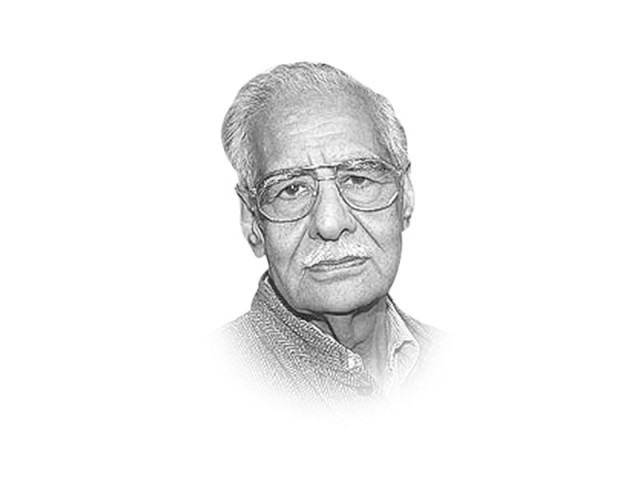Democracy and Pakistan’s establishment
Most of Pakistan’s problems are the doings of the security establishment.

The writer is a syndicated columnist and a former member of India’s Rajya Sabha
This was primarily because Kayani was considered ambitious. Moreover, it was believed that there might be another coup because such has been the practice in the past. But fortunately, Kayani had come out in the open on what his plans were. “I am grateful to the political leadership and the nation for reposing their trust in me and the Pakistan Army at this important juncture of our national history. However, I share the general opinion that institutions and traditions are stronger than individuals and must take precedence.”
The perception about Pakistan is that the army can walk in whenever it likes. The coups, first by General Mohammad Ayub, then by General Ziaul Haq and finally by General Pervez Musharraf, have given the impression that although the army goes back to the barracks, its influence does not wane.
This is true as well because even Prime Minister (PM) Nawaz Sharif, who has said that the PM is the ‘boss’, has been careful not to lessen the pre-eminence of the army. Since the PM, after election through a democratic process, was thrown out by General Musharraf, he is understandably respectful to the army chief. Both the PM and Kayani are reportedly discussing who should succeed Kayani, a job which in a democratic country is settled by the government. Most pictures I see in newspapers show Kayani by the side of Nawaz Sharif.
Therefore, there was surprise, as well as a sense of satisfaction, when there was a cryptic press release from the Inter-Services Public Relations that the chief of army staff would retire on November 29, when his extended tenure ends. In fact, when former PM Yousaf Raza Gilani gave Kayani an extension of three years, there were rumours that Gilani had no choice, as if the extension was at the point of gun. There was nothing like that. Gilani wanted a professional head to depoliticise the army, something which Musharraf had not done during the eight and a half years that he stayed in power.
Whether Kayani’s retirement in a regular manner is enough evidence to infer that there will never be a coup in Pakistan is not easy to say. But chances will lessen as the days go by because the people have more and more vested interest in the election process. I find the leading politicians of different parties going on record as saying that the people would come out on to the streets if ever the army tries to take over.
I wish this would be true. But my experience is different. When Zulfikar Ali Bhutto assumed power, he told me that “we have learnt from history” and that Pakistanis would revolt and hit the streets to stop the tanks if they ever came out. This was proved wrong when Musharraf took over.
I am intrigued by more or less the farewell statement that Kayani has made. He has said: “It is important that the military leadership in future also continue to play its unreserved role for strengthening of the democratic system in the country.” But Kayani’s use of words like military’s ‘unreserved role’ for strengthening of democratic system conveys it all. The ‘unreserved role’ means that the military is expected to act in a manner which is not written in any constitution, nor defined otherwise.
The army chief should know that the elected government has the final word. Most of Pakistan’s problems are the doings of the security establishment. The army chief should realise that democracy is not a gift, definitely not from the armed forces. What he was saying from experience is that Pakistanis are not prepared for another military rule. This has been the effect of Musharraf’s failure. It is a plus point for democracy in Pakistan.
Published in The Express Tribune, November 18th, 2013.
Like Opinion & Editorial on Facebook, follow @ETOpEd on Twitter to receive all updates on all our daily pieces.















COMMENTS
Comments are moderated and generally will be posted if they are on-topic and not abusive.
For more information, please see our Comments FAQ